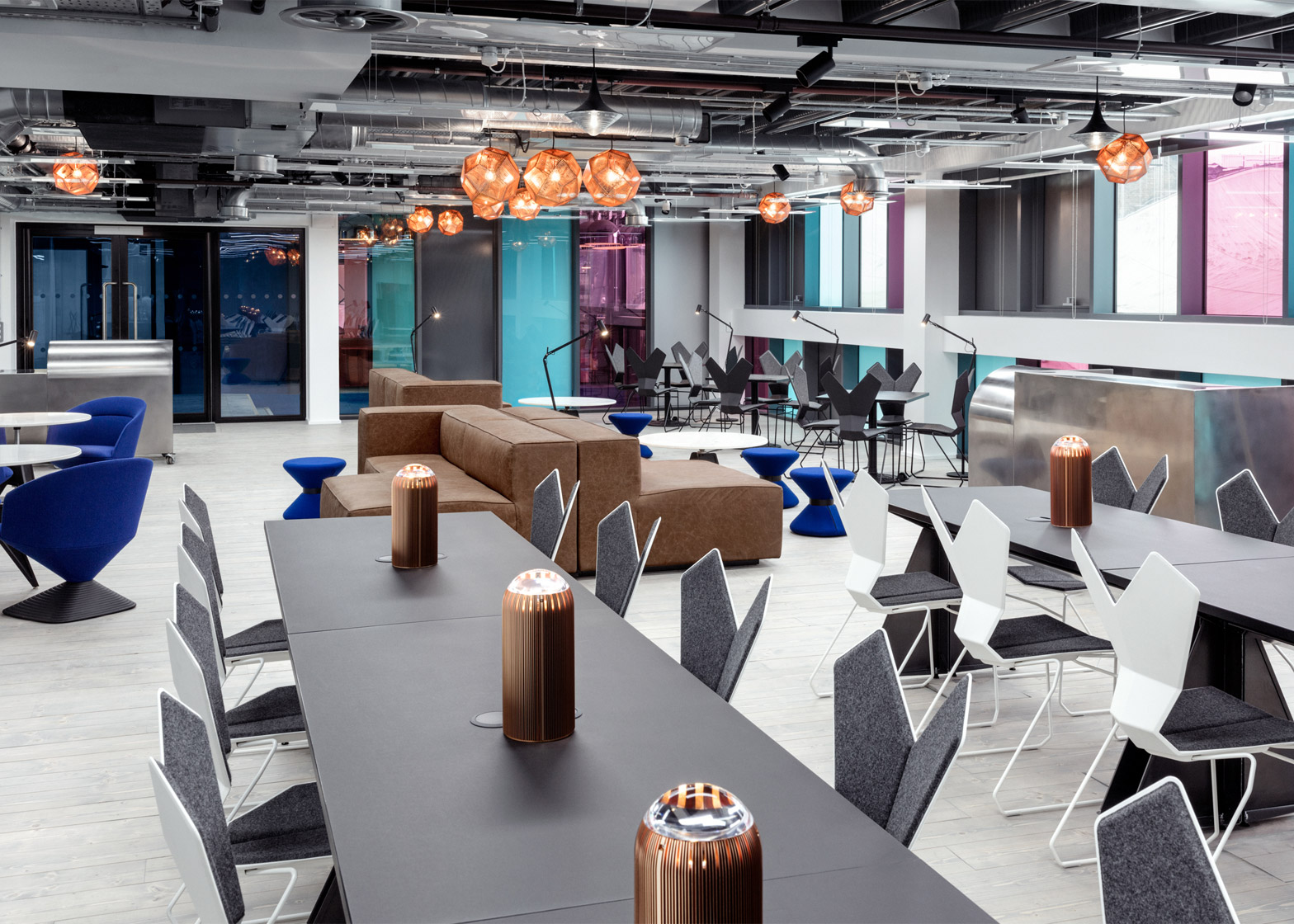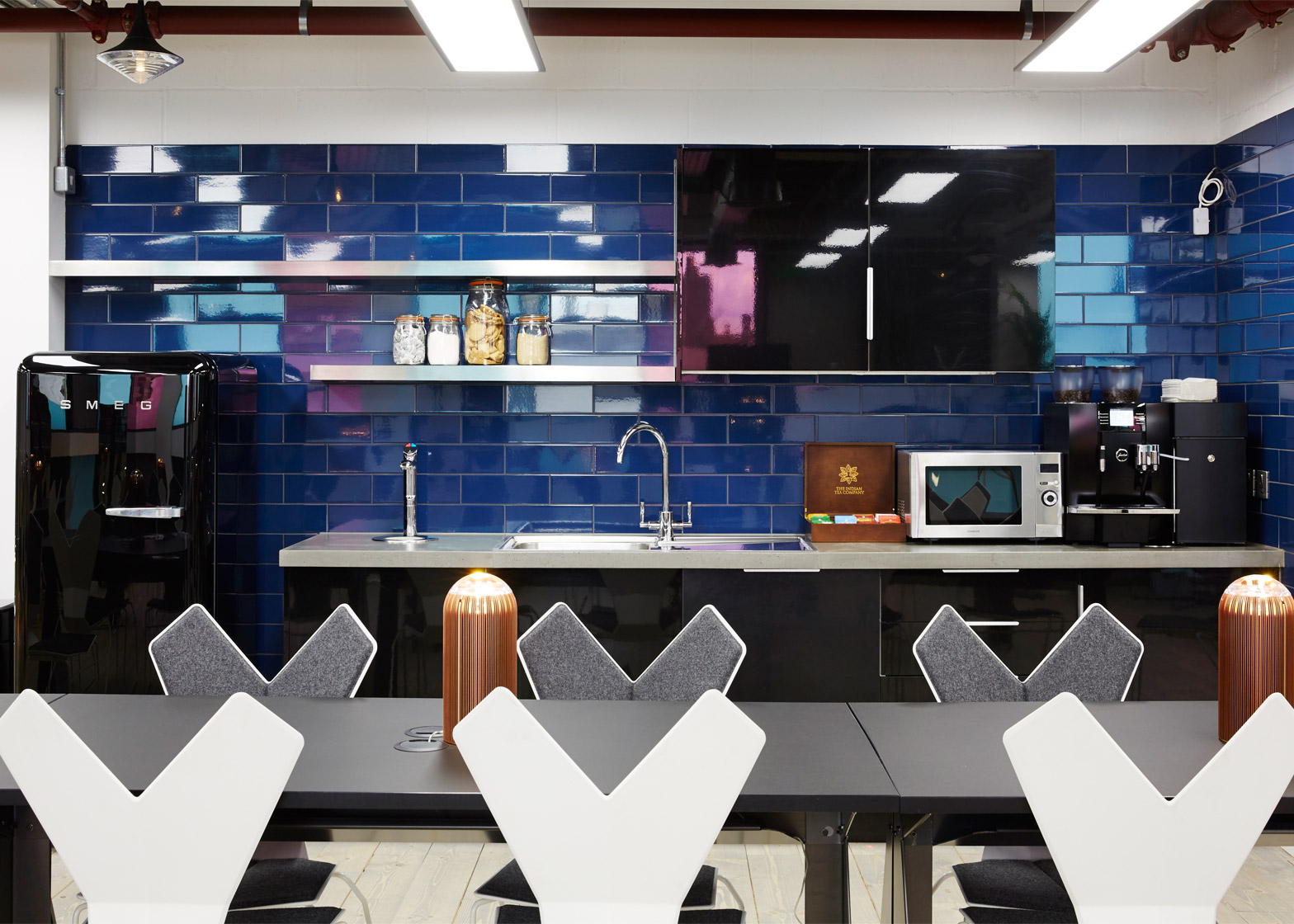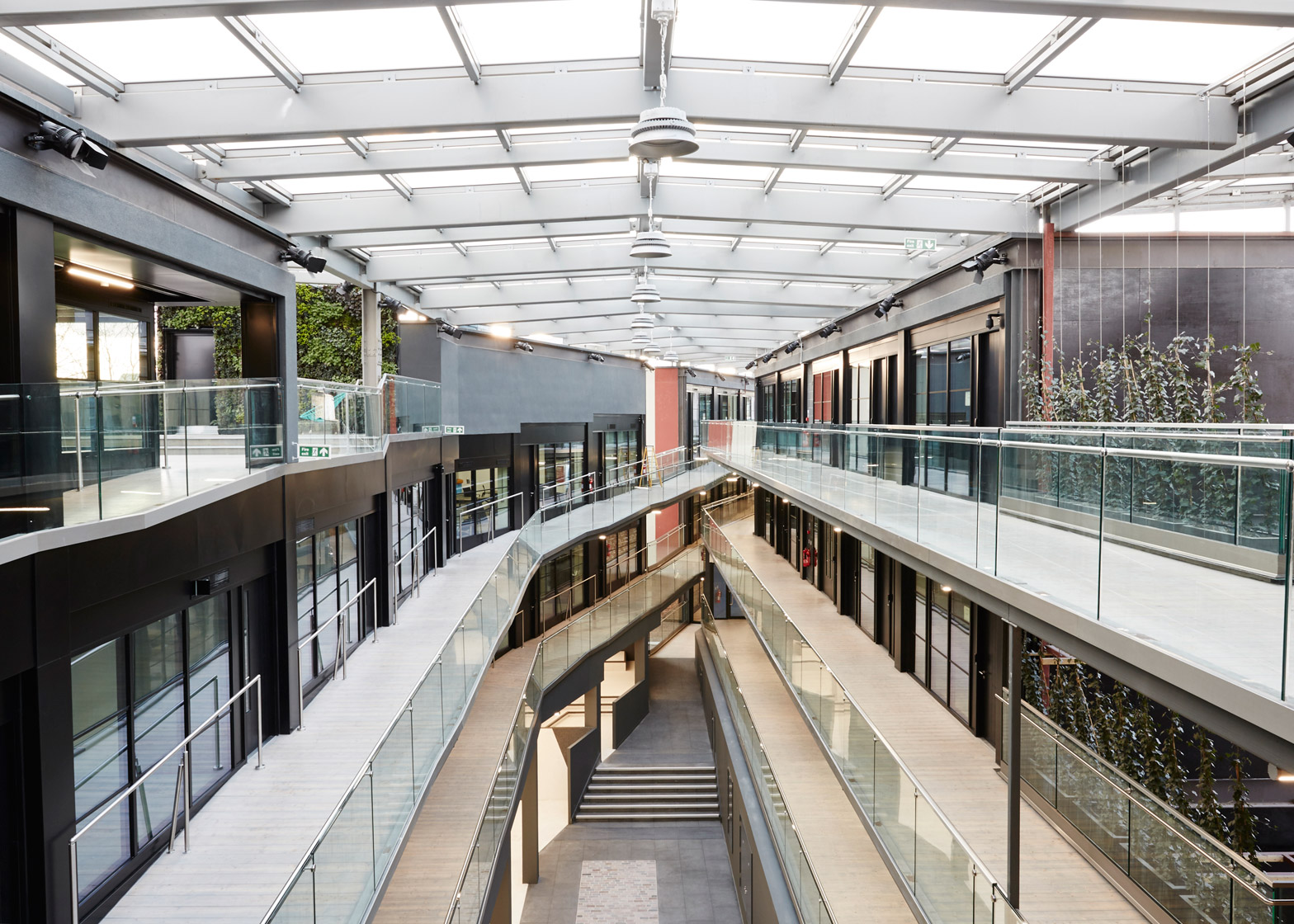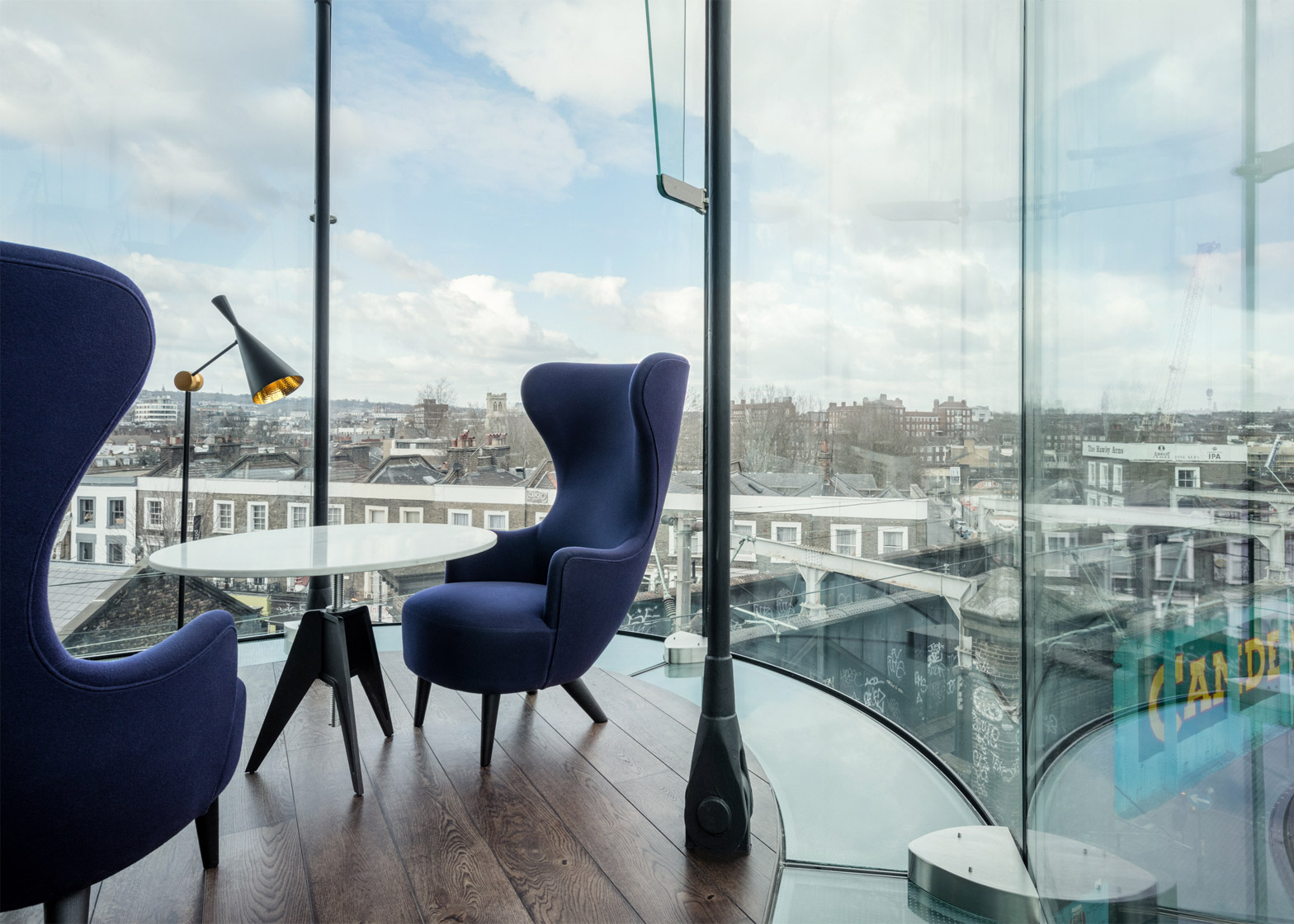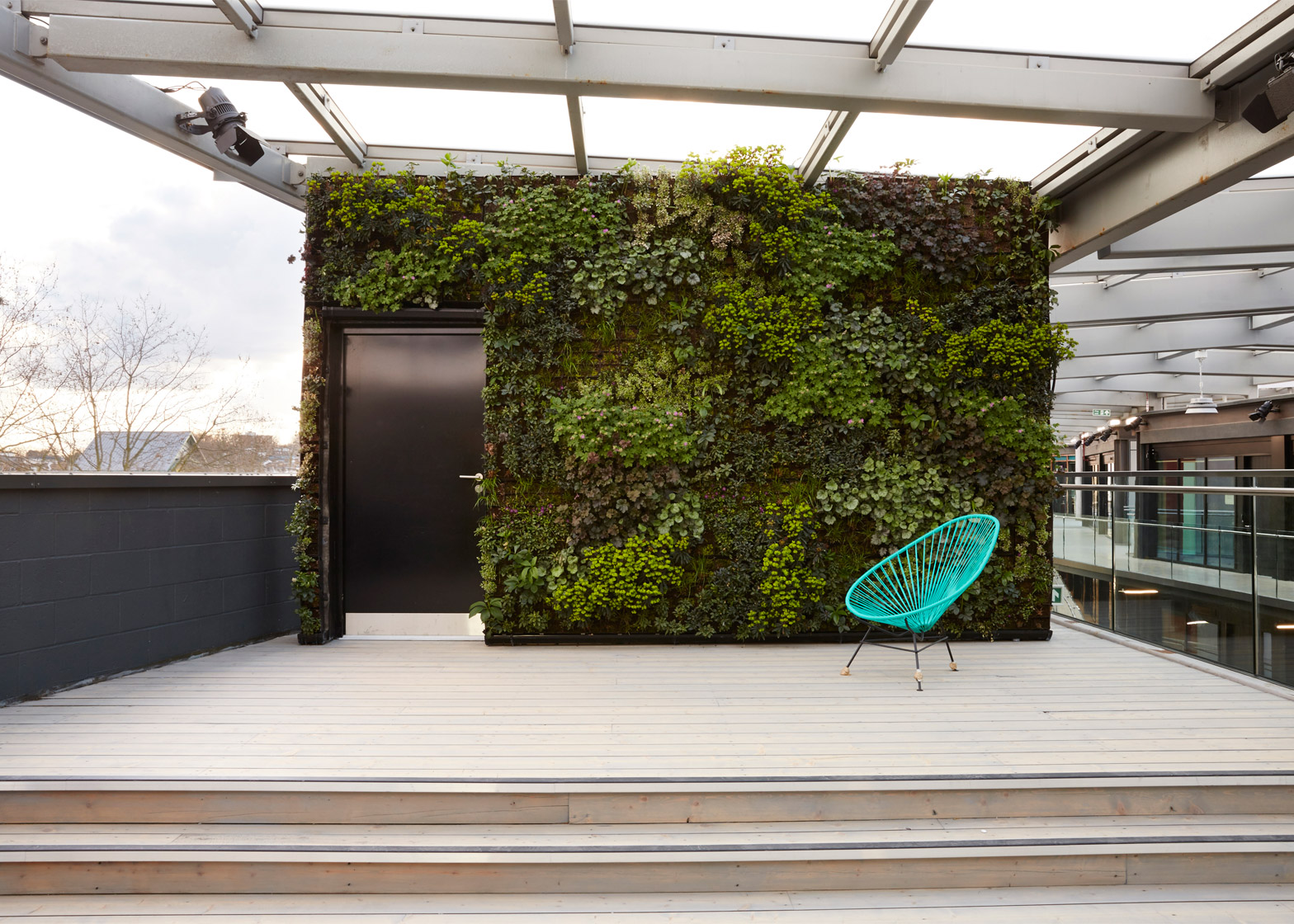British designer Tom Dixon has used his furniture and lighting to kit-out a co-working space for freelancers and small businesses, which opens today in London (+ slideshow).
Atrium is the third office to open in Interchange's network of Camden-based co-working spaces targeting entrepreneurs, start-ups and creatives.
Dixon's interiors practice Design Research Studio created furniture and lighting for the space, which takes inspiration from hotels, clubs and other social environments as much as it does from traditional office structures.
The studio's interventions include a custom lighting installation crafted from laser-cut stainless steel tubes in Atrium's four-storey foyer. The installation makes use of forced perspective, appearing as a large geometric arrangement of lit tubes when seen from one end, but forming the "I" of the Interchange logo when seen from another.
Dixon's Melt pendant lights, launched as part of his 2015 collection in Milan last year, also hang in the office.
Atrium offers both private offices and hot-desking areas, with a total of 600 workstations. Tenants will have access to the Atrium's courtyard, events space, restaurant, "innovation lab", cafe and, as of later this year, a gym.
The building's infrastructure is designed by architects Barr Gazetas. The studio aimed to encourage communal productivity and interaction by adding a central spiralling walkway, covered terraces and vertical gardens.
Atrium's Camden Market location – where it joins existing Interchange hubs Triangle and Utopia, which also contain contributions from Design Research Studio – was a key attraction for Dixon.
"Camden Market's prehistory as a hub for commerce, transport and technology since the industrial revolution appealed to us from a conceptual point of view, and it's more recent past as a place for radical music, fashion and retail makes it a great backdrop for the fast moving and impatient world of start-ups and tech companies," he said.
Interchange has experienced high demand, according to its managing director, Vanessa Butz, and Atrium is 50 per cent pre-let in time for its launch day on 19 May 2016. Confirmed tenants come from Cisco's experimental division Cisco Create, event recommendation app Fever Up, delivery company Inpost and start-up accelerator IncuBus.
The company is one of many co-working enterprises growing around increasing demand from start-ups and freelancers, and designers have seized the opportunity to influence these emerging, evolving office environments.
New York-based Leeser Architecture inserted angular and brightly coloured stairwells into Brooklyn's Coworkrs, while London firm Jump Studios also created a bold scheme for the Google Campus co-working space in Madrid.
More traditional, single-company office spaces have also been redesigned in recognition of the major role environment plays in influencing company culture.
"Research suggests that architecture, interior design and furnishings provide a tangible way to support – or even change – the culture of an organisation," design company Haworth noted in its 2016 white paper.
Dixon has also recently launched a range of homewares entitled Materiality, experimental kitchens for Caesarstone and a tile collection for Bisazza referencing London's landmarks.
He spoke to Dezeen about how the uncertainty over whether the UK will vote to leave the European Union was damaging the UK's design industries.
"It's hard to tell [if sales are affected], but I think people feel very nervous and people who feel nervous don't spend money on copper lamps," he said. "They won't build buildings."

